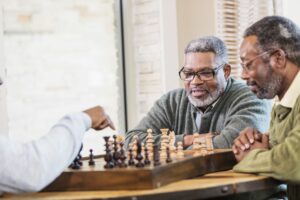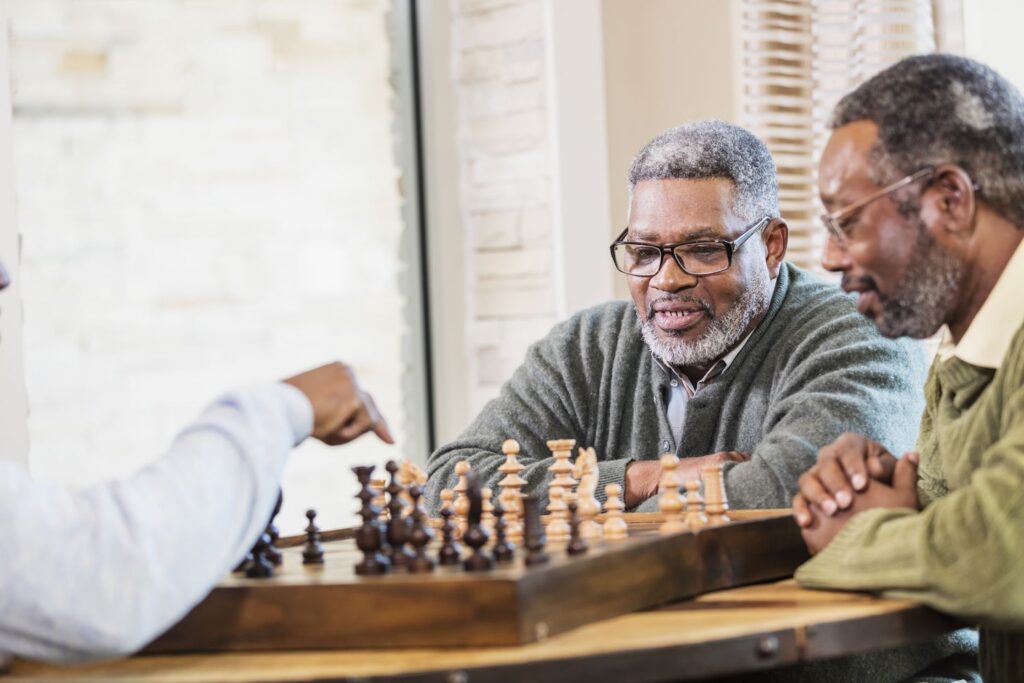If a loved one suffers from a stroke the next steps you take are crucial. Proper recovery can help prevent cognitive decline resulting in Vascular dementia or worsening of symptoms that are already present. Those already living with dementia who then suffer a stroke are more likely to develop aphasia, which negatively impacts the speech and language part of the brain.
Seeking Professional Rehabilitation Services
After experiencing a stroke, it is important to seek professional rehabilitation services to aid in yours or your loved one’s recovery. These services can include physical therapy, occupational therapy, and speech therapy. Physical therapy helps to improve mobility and strength, while occupational therapy focuses on regaining skills necessary for daily living. Speech therapy is beneficial for those who experience difficulty with communication or swallowing.
Rehabilitation professionals will work closely with you to create a personalized treatment plan based on your specific needs and goals. They will guide you through exercises and activities designed to improve your physical and cognitive abilities.
In addition to professional rehabilitation services, it is important to follow any medication or treatment plans prescribed by your healthcare provider. This may include taking medications to manage risk factors for stroke and dementia, such as high blood pressure or high cholesterol.
Implementing Lifestyle Changes for Brain Health
Implementing lifestyle changes can play a significant role in managing the risk of dementia after a stroke. To promote brain health, it is important to adopt a healthy and balanced diet. Include a variety of fruits, vegetables, whole grains, lean proteins, and healthy fats in your meals. Limit the intake of processed foods, sugary snacks, and saturated fats.
Regular physical exercise is also beneficial for maintaining brain health. Engage in activities that elevate your heart rate and increase blood flow to the brain, such as walking, swimming, or cycling. Try for at least an hour of moderate-intensity exercise per week.
In addition to nutrition and exercise, it is important to engage in mentally stimulating activities to keep your brain active and sharp. This can include reading, solving puzzles, learning a new skill, LEGO-building, or engaging in hobbies that require cognitive effort.
Managing stress is also crucial for brain health. Find healthy coping mechanisms to deal with stress, such as practicing relaxation techniques, engaging in mindfulness or meditation, or seeking support from friends, family, or a therapist.
Lastly, ensure you are getting enough quality sleep. Aim for 7-9 hours of sleep per night and establish a regular sleep routine.
Building a Support System
Building a support system is essential for long-term care following a stroke. Reach out to your family, friends, and loved ones for emotional support and assistance with daily activities as needed. They can provide encouragement and help alleviate any feelings of isolation or depression that may arise during the recovery and caregiving process.
Consider joining a stroke and/or caregiver support group to connect with others who have experienced similar challenges. These support systems can provide a sense of community and understanding, as well as valuable tips and resources for navigating the recovery process.
Additionally, consider discussing long-term care options with your healthcare team and loved ones. This may include exploring at-home healthcare services, enhanced assisted living communities, or nursing homes, depending on yours or your loved one’s individual needs and preferences. Having a plan in place for long-term care can provide peace of mind for the recovery process and the future.








